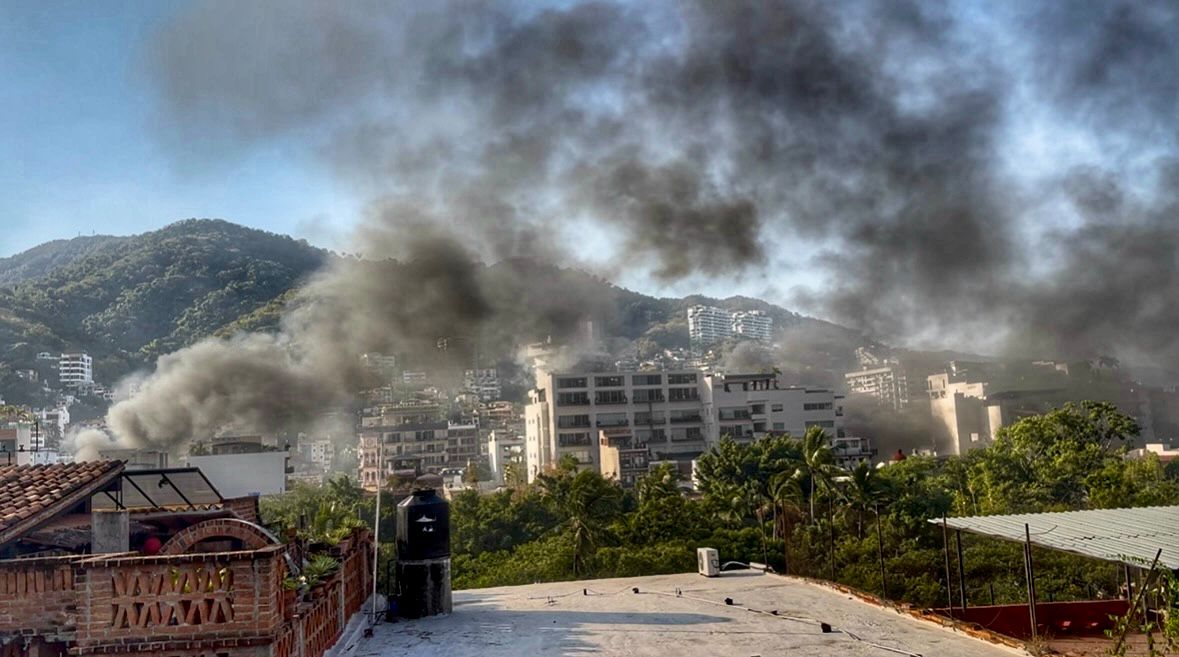[dropcap size=big]F[/dropcap]or this mother of six, the workday begins well before 6 AM. Before leaving, while the day is at its coldest, she packs a foldable wagon with trash bags, eating utensils, cups, and several coolers containing hot tamales and flautas she made earlier in the morning.
A pair of tall beverage coolers contain oatmeal and thick champurrado, the ultra-nutritious hot chocolate and masa drink that pairs well with fresh conchas (which she also sells).
It’s a 30-minute walk from her home to the hardware store where she’s been vending for the last few years. For most of that time, she walked alone, but the pandemic has allowed her youngest son to now accompany her, so long as he’s back in time for his first online class. She and her son chose not to be named for this article.
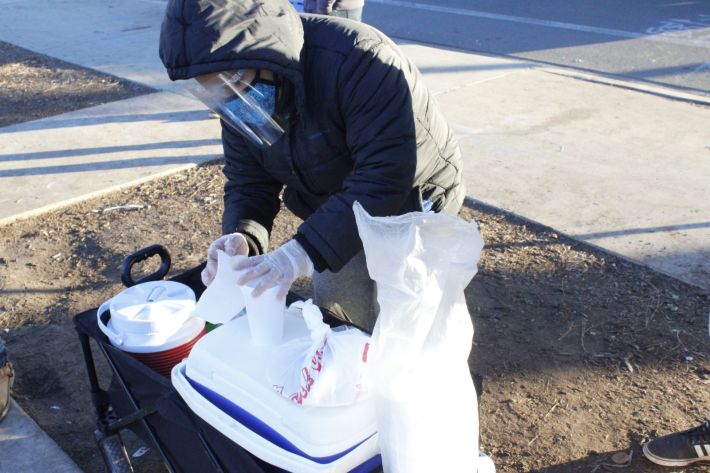
“Business is slow right now,” she said, “There are not as many men working, so we don’t sell as much.”
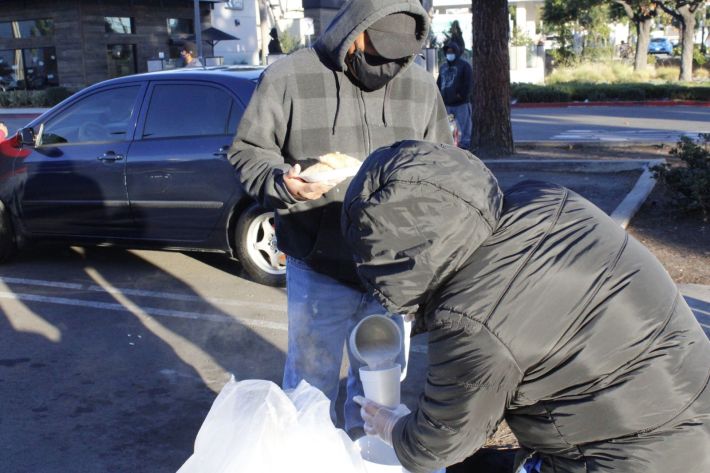
This vendor is a critical component to a small informal labor market, consisting of the handymen and movers found every day in the parking lot of hardware stores around Los Angeles. They offer a variety of skilled labor to patrons, made available by an impromptu, cash-based verbal contract usually made while a car idles and a rate is worked out between the two parties. Some of the handymen have trucks full of tools parked and ready to follow anyone willing to hire them, and others have only what they can carry by hand and on their back. Their individual hourly or day rates vary according to their specialties and tools.
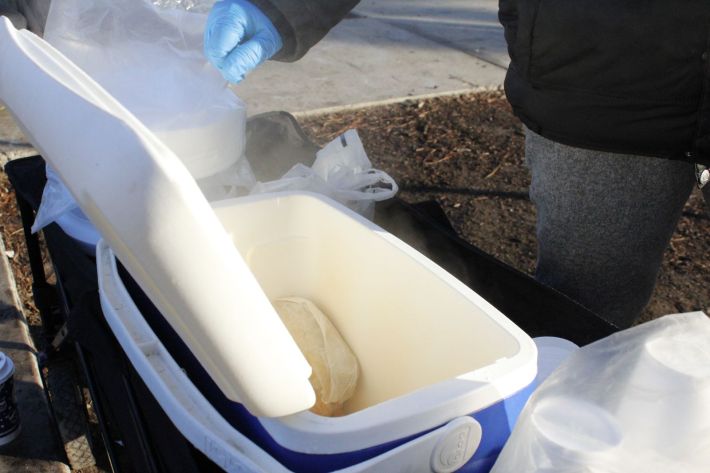
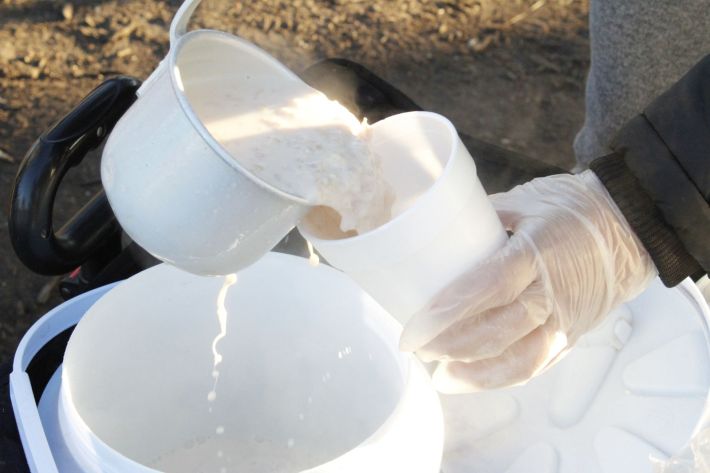
As soon as the street vendors arrive, the workers start lining up, purchasing homestyle food plates with prepackaged salsa to start the day. Some men order cheese, pork, and chicken tamales; others walk away with a stack of crispy flautas. She and her son pour champurrado into oversize Styrofoam cups, quickly depleting her daily supply.
Afterward, her son, who is in high school, walks around with a trash bag and collects all the trash to throw away, leaving no trace behind. He says that after he graduates high school, he wants to follow in his older brother’s footsteps and become a barber. “He cuts my hair,” he says, showing his combover haircut with a line-up and fade.
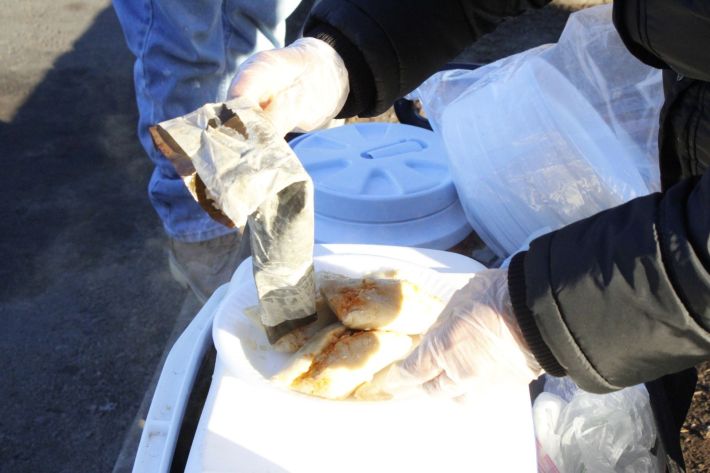
The vendor answered questions because she felt it was important that people know about the work they do. “Todos estamos aquí luchando,” she said. “We are just raising our families, and we help each other too.”
For the freelance tradesmen, the business can be rewarding, but sometimes they report being paid nothing or not enough for their labor, which hurts because many men have families to provide for. There have been bad experiences, but they say it’s good overall.
“This is where the money’s at, and it's one of the only places where we’re not hassled by police or the businesses...”
One worker, wearing a Dodgers hat and shirt, chooses to go by the name “Pancho Villa.” He said the work is always slower in the Winter season. “Every year is the same. The work goes back up around March or April when people get their money from taxes,” he said.
Villa is a devout Dodgers fan, saying that he remembers working in his mom’s restaurant in Tijuana and listening to the Dodger games on the radio. His mother passed away when he was very young, so he moved to be with his brothers and family in the U.S.
He attended Venice High School in Los Angeles. Since then, he has held a couple of jobs and said he has been selling his labor for the better part of 42 years.

“In this trade, the skills make the person. When you work and do your job every day, that’s how you start learning more and more,” he said. Villa tried to get papers decades ago but said a drug charge he had from the 1970s prevented his application from being approved. He now owns his own work truck and tools that he shares with another man he works with.
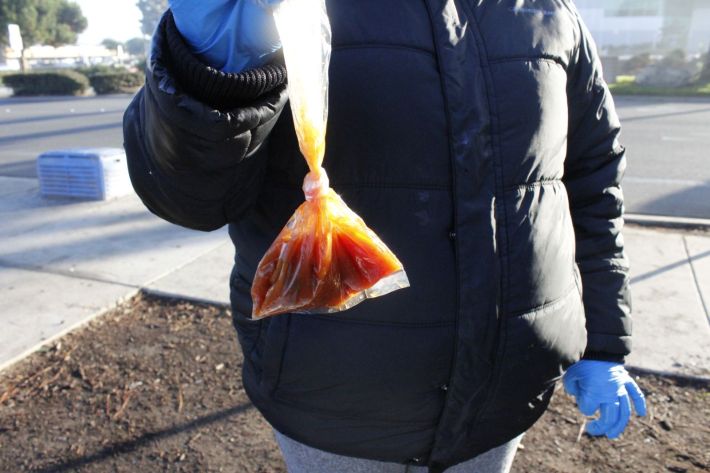
One of the younger men in the group, a 31-year old named Ozzy Perez, is from the local area and has been working there for about seven years. He rides a BMX bicycle and organizes large ride outs in the area with dozens of other riders.
“This is where the money’s at, and it's one of the only places where we’re not hassled by police or the businesses,” said Perez, “But we had a security guard who would tax people to stand here. We get dumbasses once in a while, but it’s usually good.”
“Some people think we don’t like to work, or we’re just thieves. There are hard workers right there and there and there,” he says, pointing at different trucks and handymen.
Perez is referring to the parking enforcement security recently hired by some of the local businesses. When they arrived, the work trucks were herded into a corner of the lot, next to the hardware store’s rental trucks. Some guards were audacious enough to try taxing the workers and vendors.
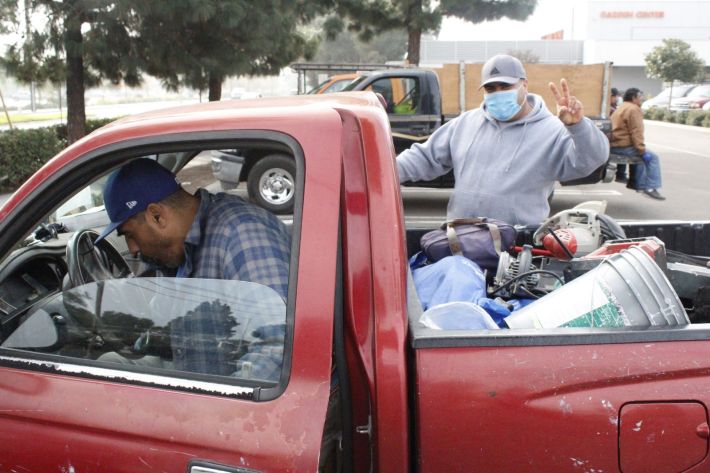
“He tried taxing a torta vendor, and she ended up leaving. So that’s why we try to protect (the champurrado vendor), so no one bothers her,” he said.
When work is slow, the men can’t afford to take holidays. They come early and don’t leave until the afternoon or until they feel they earned as much as they could.
“Some people think we don’t like to work, or we’re just thieves. There are hard workers right there and there and there,” he says, pointing at different trucks and handymen.

